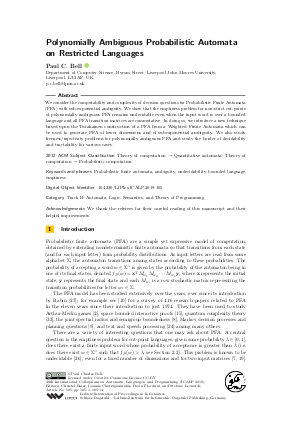LIPIcs.ICALP.2019.105.pdf
- Filesize: 465 kB
- 14 pages

 Creative Commons Attribution 3.0 Unported license
Creative Commons Attribution 3.0 Unported license


































Feedback for Dagstuhl Publishing